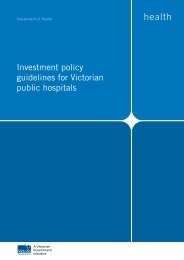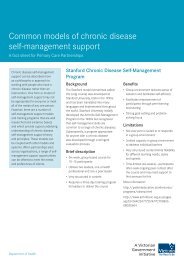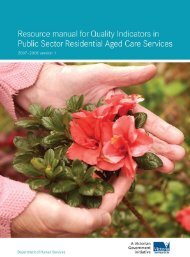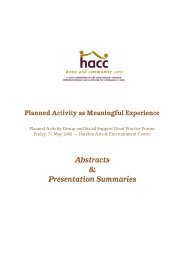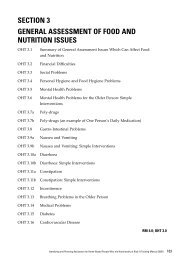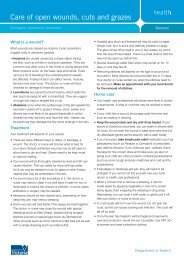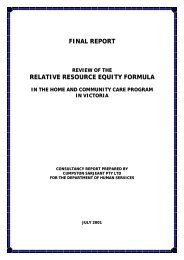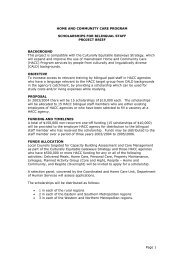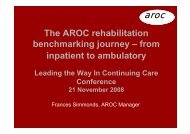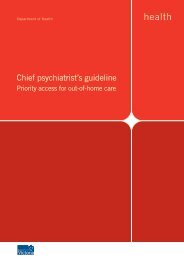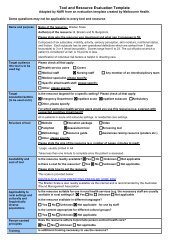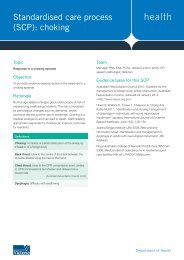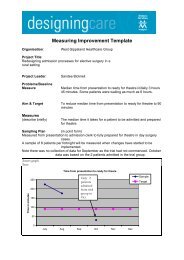Health Services Commissioner Annual Report 2000/2001
Health Services Commissioner Annual Report 2000/2001
Health Services Commissioner Annual Report 2000/2001
Create successful ePaper yourself
Turn your PDF publications into a flip-book with our unique Google optimized e-Paper software.
Unsubstantiated 0% 0%<br />
Remedial action 4% 1%<br />
Fee waived/reduced 4% 3%<br />
Procedural change 2% 5%<br />
Explanation offered 51% 62%<br />
Apology 2% 3%<br />
The most effective means of resolving complaints is where the provider responds in a<br />
timely and empathetic way. An apology, where appropriate, is also useful. Most<br />
people who do lodge complaints want to know what went wrong and why, and<br />
they want to make sure the same thing does not happen to someone else. In<br />
other words, they are seeking quality improvements.<br />
A man lodged a complaint about a podiatrist because the podiatrist had been<br />
rough, he hurt him and made his toe bleed. The man wanted his money<br />
refunded. The HSC sent the complaint to the podiatrist who contacted the man<br />
and said he would refund the service fee. He also apologised. The podiatrist<br />
refunded the money quickly and within five days of receiving the complaint it<br />
was closed with both parties satisfied with the outcome.<br />
RESOLUTION BY INVESTIGATORS<br />
The Investigators’ role includes acting as team leaders for the Inquiry Officers and<br />
this means the reading and accepting or declining of all new complaints into the office<br />
and giving advice on the management of accepted complaints.<br />
Most complaints (approximately two thirds) are resolved in the initial stages by<br />
sending them to the service provider and asking for a response. Those that are not<br />
resolved by this process are then assessed by the Investigators to see how they might<br />
be resolved.<br />
The options for resolution are informal resolution during assessment, referral to<br />
conciliation or investigation by the <strong>Health</strong> <strong>Services</strong> <strong>Commissioner</strong> or external referral<br />
to a professional registration board.<br />
Resolution during assessment might involve the investigator contacting other treating<br />
health services, obtaining medical records and reports, seeking expert opinions and<br />
conducting meetings between the parties. Complainants may be assisted to obtain<br />
their own evidence to support their case where they remain dissatisfied with<br />
explanations offered by the service providers.<br />
A family complained to the HSC, following the death of an elderly man, that his<br />
general practitioner had failed to diagnose and treat his condition. The man had<br />
collapsed and had been admitted to hospital but had died soon after admission.<br />
The cause of death was heart failure that had been present for a number of<br />
years.<br />
In his response to the family, the general practitioner said that his patient had<br />
been well aware of his heart condition but had declined to have any treatment<br />
<strong>Health</strong> <strong>Services</strong> <strong>Commissioner</strong> <strong>Annual</strong> <strong>Report</strong> <strong>2000</strong>/<strong>2001</strong> 28



